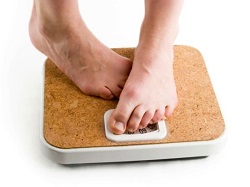 Colleen M. Cook, President, Speaker, Author
Colleen M. Cook, President, Speaker, Author
From the “Do I have to go?” to the “I can’t wait until next month” attitude, feelings about bariatric support groups are as diverse as the groups themselves. At any one of the thousands of bariatric support group meetings held each month, you will find that those in attendance include:
- Weight-loss surgery investigators seeking information and the “real story”
- Anxious pre-op patients waiting for surgery
- Early post-op patients or “newbies”
- Long-term veteran patients checking in
- Back on trackers seeking to re-lose pounds
- Friends and family members
- Volunteers
- Professionals
Each person is there for a different reason, with different needs and doesn’t it make you wonder, “What is it that draws these people together? Why do they come?”
Our experience with thousands of weight-loss surgery patients and hundreds of support groups has provided us some valuable insight into why people attend support groups, how they are benefiting and why those who are not attending should. Here are just a few of the benefits that we identified:
Validation: From my own experience, I recall the weeks prior to my surgery were a time of great trepidation; a time full of questions.
For instance:
- “Am I doing the right thing?”
- “Will I be ok?”
- “Will I succeed?”
- “Is it worth the risk?”
Many turn to bariatric support group to find not only answers to practical questions, but also for validation for my decision to have weight-loss surgery. While each must find his or her answers to these questions and come to feel good about their choices, support groups can help provide insight, perspective and real world experiences from those who have been there and now are able to share their perspective.
Education: Quality support groups provide more than just social and emotional support. They provide a wonderful opportunity for learning. Some groups provide a more structured agenda, featuring scheduled topic presentations and discussions. Others enjoy participatory activities designed to reinforce key principles of success and help patients learn new how to incorporate them into their own lives.
Many groups often invite guest speakers. Some are bariatric professionals like dietitians, psychologists and fitness instructors. Other guests provide presentations on topics like grooming, dating and cooking. All are designed to educate, inform and provide a well-rounded foundation of knowledge for long-term success.
Motivation: There is a wonderful story told of a young mother wanting to have her little boy learn to play the piano. He was taking lessons and she was just sure that he would become a famous pianist. She made arrangements for him to go to Carnegie Hall to the see the Master Ignacy Paderewski play.
She dressed-up her son in his little suit and took him to the concert. They found their seats, settled down real close to the stage, and the mother turned around and saw a friend of hers and started talking. When she turned back around the little boy was gone, and she panicked immediately. “Where did he go? Oh, no!” Moments later, she noticed her son up on the stage, at the grand piano on Carnegie Hall, playing “Twinkle, Twinkle Little Star.” He had just learned the song. The audience was aghast – “Somebody stop him!” “That is awful!” “Somebody get him down from there!”
From the back of the room came the Master Ignacy Paderewski at a dead run, down through the aisle, up onto the stage, and behind the little boy. He began playing an accompanying melody to the little boy’s song and as he did, he encouraged, saying, “Don’t stop, keep going, you’re doing fine.”
As weight-loss surgery patients, we sometimes feel alone and misunderstood in the real world. It is so very important to surround ourselves with people who understand our decision to have weight-loss surgery and what it is like to deal with the many physical, emotional and relationship changes that we experience throughout our journey.
Support groups are a place to find people who provide us with understanding, compassion and encouragement.
Celebration: As pounds come off, health is restored and dreams come true. It is a wonderful thing to have an opportunity to share successes with others. Support groups provide just such a place. Whether formally or informally, comments like these abound: “I am half the woman I used to be!” “I can cross my legs!” “They didn’t even recognize me!”
What an exciting time for weight-loss surgery patients. Support groups provide patients a time to share their success; to have a moment in the sun, to be queen or king of the prom, to graduate, or to receive a personal recognition for their achievement with a pin, photo or certificate.
Re-dedication: The first few years following weight-loss surgery are awesome, but there comes a time when we reach, “the end of invincible.” It is not uncommon for patients to slip back into old habits, regain a few pounds and become discouraged. When and if that happens, support groups become an even more important connection to help stay focused, in control and successful. A monthly weigh-in or check-in at a support group meeting provides an important element of accountability and an opportunity to reconnect and rededicate ones self to long-term goals.
So, how does your support group measure up? How are you providing opportunity for patients to be educated, motivated, celebrated or rededicated? As always, BSCI is here to help. Click here for more information on our Support Group Leader Certification Courses, lesson plans, teaching aids and resources.



 Colleen M. Cook, President, Speaker, Author
Colleen M. Cook, President, Speaker, Author




